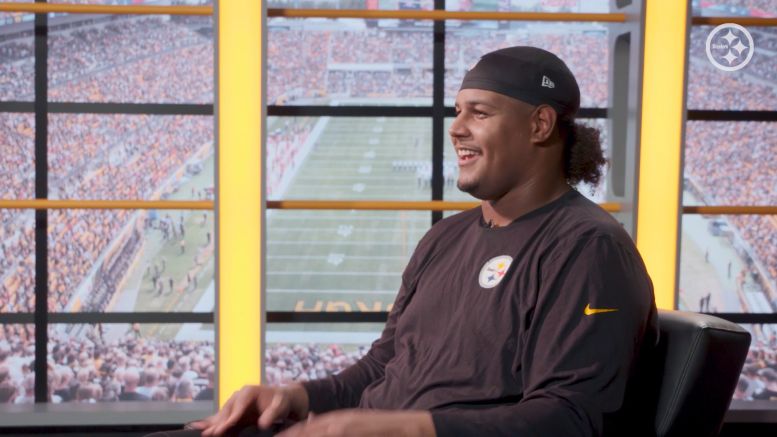No individual in the NFL has been more vocal in sticking up for the Jewish community in the wake of DeSean Jackson’s anti-Semitic postings than has Zach Banner, the Pittsburgh Steelers’ African American offensive lineman. Jackson, a veteran wide receiver of the Philadelphia Eagles, earlier this month shared a posting that ascribed a quote to Adolf Hitler accusing the Jews, in part, of seeking global control, a harmful racial stereotype.
While Jackson was somewhat quick to apologize and plead ignorance—though as a general rule of thumb you should probably never jump at the chance of sharing something ascribed to Hitler in a positive light—many have been quick to contrast the way the NFL community responded to Jackson versus its reaction to Drew Brees saying that kneeling for the anthem is disrespecting the country and the flag and that he would never agree with anybody doing that—including his own teammates, who let him know what they thought about it.
Banner wasn’t the only player to say something—Cameron Heyward was another, and Julian Edelman, himself Jewish, has been prominent as well—but he has been the most vocal and the most forceful. In speaking to Zach Gelb for CBS Sports recently, he explained why.
“As a black, African American football player in the NFL, I cannot allow one of my colleagues to destroy another group or to try to elevate ourselves past them, because then we are being hypocritical”, he said. Jackson contended that his intention was to point attention to a passage, shared but Nation of Islam leader Louis Farrakhan, saying that black people must wake up and be aware and essentially take control of their circumstances.
Zach Banner radio interview from Monday #Steelers pic.twitter.com/kxuqMcygAu
— Steelers Depot 🏆👑 (@Steelersdepot) July 14, 2020
Of course, in the same context, the reference was toward recognizing the efforts of the Jews to seize power, accusing them of seeking to ‘extort’ the country, but that black people could prevent his by being aware and recognizing themselves as the true children of Israel.
Banner and others have acknowledged that anti-Semitism is a problem in black communities. He told Gelb that he had a friend call him up and essentially ask him why he was selling out by sticking up for Jews as a black man.
“I don’t take back any of my words”, he said. “It just sucks, because, I can only speak for myself, but I’ve been around both African American and Jewish people, and one person says, ‘we were enslaved’, and another person says, ‘well, we were this’, and it’s just a back and forth”.
“It comes from a history of not being able to speak and have a platform, so this is new to us”, he added. “I’m not trying to give no excuse, especially for DeSean Jackson, but I need you to hear me out. In the past, and this was part of my message the other day, we have had these issues where no one’s listened, so we put our fists up”.
“In the past, it was needed to keep our brothers and sisters alive at certain points, which is sad. We were held down and we were oppressed. But now in 2020, and yes, we still have issues, I’m not saying that, but now in 2020, I think we should take the approach of trying to attack the systemic changes”.




